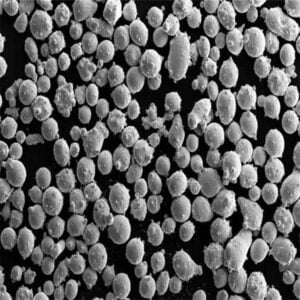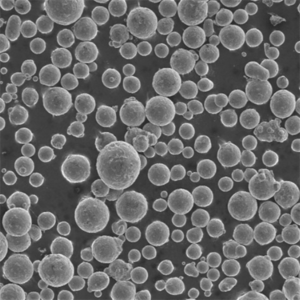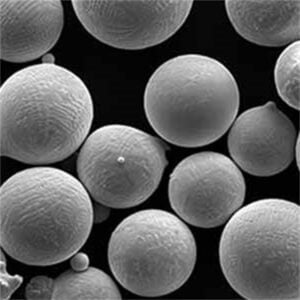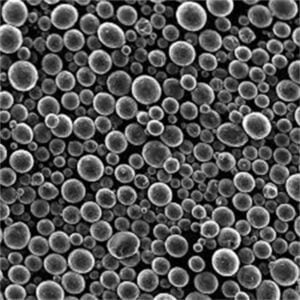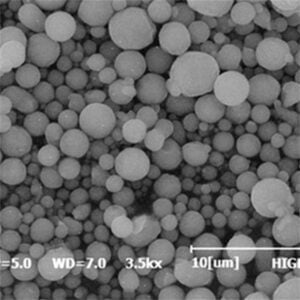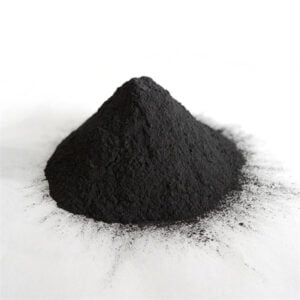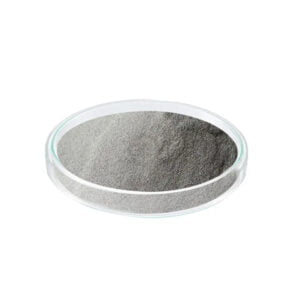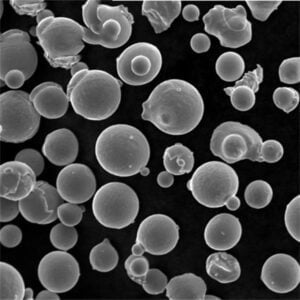Inductively Coupled Plasma
Table of Contents
Inductively Coupled Plasma (ICP) is a technology widely utilized in various fields of analytical chemistry, primarily for its exceptional ability to detect metals and other elements at very low concentrations. This guide will walk you through the nuances of ICP, providing an overview, detailed breakdowns of specific metal powder models, applications, specifications, suppliers, and much more. By the end, you will have a comprehensive understanding of why ICP is a cornerstone in modern scientific analysis.
Overview of Inductively Coupled Plasma
Inductively Coupled Plasma (ICP) is a type of plasma source in which the energy is supplied by electric currents which are produced by electromagnetic induction, that is, by time-varying magnetic fields. ICP is often used in combination with mass spectrometry (ICP-MS) or optical emission spectrometry (ICP-OES) to detect and quantify elements with high precision.
Key Details of Inductively Coupled Plasma:
- Principle: Uses electromagnetic fields to produce a high-temperature plasma
- Applications: Elemental analysis in environmental monitoring, geochemistry, food safety, pharmaceuticals, metallurgy, and more
- Advantages: High sensitivity, multi-element capabilities, wide dynamic range, and low detection limits
- Disadvantages: High operational costs, complex instrumentation, and maintenance requirements

Types of Metal Powders Analyzed by Inductively Coupled Plasma
| Metal Powder | Description |
|---|---|
| Iron (Fe) Powder | Utilized in metallurgy and magnetic applications. High purity iron powder ensures accurate results in ICP analysis. |
| Copper (Cu) Powder | Essential for electrical applications. ICP analysis of copper powder helps in assessing purity and potential impurities that affect conductivity. |
| Aluminum (Al) Powder | Widely used in aerospace and automotive industries for its lightweight properties. ICP ensures the quality and consistency of aluminum powders. |
| Nickel (Ni) Powder | Key in battery production and high-performance alloys. ICP analysis detects trace elements that could compromise battery efficiency. |
| Silver (Ag) Powder | Valued in electronics and jewelry. ICP analysis ensures the high purity required for industrial and ornamental purposes. |
| Gold (Au) Powder | Critical in high-end electronics and investment products. ICP analysis provides precise measurement of gold purity and contamination levels. |
| Titanium (Ti) Powder | Used in medical implants and aerospace components for its strength-to-weight ratio. ICP analysis confirms the absence of detrimental impurities. |
| Zinc (Zn) Powder | Important for galvanization and alloy production. ICP helps maintain the high quality of zinc powders by detecting harmful impurities. |
| Lead (Pb) Powder | Though toxic, it is used in batteries and radiation shielding. ICP analysis is essential for ensuring safe handling and compliance with safety standards. |
| Chromium (Cr) Powder | Utilized in stainless steel and alloy production. ICP ensures the right balance of elements in chromium powders for optimal alloy performance. |
Applications of Inductively Coupled Plasma
ICP is versatile and finds its place in numerous applications across various industries. Let’s delve into some of the key applications.
| Application Area | Description |
|---|---|
| Environmental Monitoring | Detecting trace metals in water, soil, and air to ensure compliance with environmental regulations. |
| Geochemistry | Analyzing mineral compositions and soil samples to understand geological formations and processes. |
| Food Safety | Ensuring food products are free from harmful levels of metals like lead, arsenic, and mercury. |
| Pharmaceuticals | Quality control in drug manufacturing by detecting metal impurities in raw materials and finished products. |
| Metallurgy | Assessing the composition and purity of metal alloys used in construction and manufacturing. |
| Biomedical Research | Studying trace elements in biological samples for medical research and diagnostic purposes. |
| Electronics | Analyzing the purity of metal powders used in the production of high-tech electronic devices. |
| Energy Sector | Quality control of metal powders used in battery production and renewable energy systems. |
| Cosmetics | Ensuring cosmetic products are free from harmful metal contaminants. |
| Aerospace | Verifying the composition and quality of metal powders used in the aerospace industry for critical components. |
Specifications, Sizes, Grades, and Standards for Metal Powders
To ensure precision and consistency in ICP analysis, it is crucial to adhere to specific standards and specifications for metal powders.
| Metal Powder | Purity (%) | Particle Size (µm) | Grade | Standard |
|---|---|---|---|---|
| Iron (Fe) Powder | ≥ 99.9 | 10-45 | Industrial, Analytical | ASTM E1019 |
| Copper (Cu) Powder | ≥ 99.99 | 1-10 | Electronic Grade | ASTM B170 |
| Aluminum (Al) Powder | ≥ 99.95 | 15-75 | Aerospace Grade | AMS 4289 |
| Nickel (Ni) Powder | ≥ 99.8 | 5-20 | Battery Grade | ASTM B330 |
| Silver (Ag) Powder | ≥ 99.99 | 1-5 | High Purity | ASTM B812 |
| Gold (Au) Powder | ≥ 99.999 | 1-10 | Electronic Grade | ASTM B562 |
| Titanium (Ti) Powder | ≥ 99.5 | 20-100 | Medical Grade | ASTM F1580 |
| Zinc (Zn) Powder | ≥ 99.95 | 10-45 | Industrial Grade | ASTM B349 |
| Lead (Pb) Powder | ≥ 99.99 | 1-50 | Battery Grade | ASTM B813 |
| Chromium (Cr) Powder | ≥ 99.9 | 5-45 | Industrial Grade | ASTM A923 |
Suppliers and Pricing Details for Metal Powders
Having reliable suppliers is key to obtaining high-quality metal powders for ICP analysis. Below are some of the notable suppliers along with typical pricing details.
| Supplier | Metal Powder | Price (per kg) | Region | Contact Information |
|---|---|---|---|---|
| American Elements | Iron, Copper, Nickel | $150 – $500 | USA, Global | [email protected] |
| Sigma-Aldrich | Silver, Gold, Titanium | $500 – $2000 | Global | [email protected] |
| Advanced Materials | Aluminum, Zinc, Chromium | $100 – $700 | USA, Europe | [email protected] |
| Höganäs | Iron, Copper | $120 – $600 | Global | [email protected] |
| Nanostructured & Amorphous Materials, Inc. | Nickel, Lead, Zinc | $200 – $800 | USA, Asia | [email protected] |
| NovaCentrix | Silver, Gold | $600 – $2500 | USA | [email protected] |
| Pacific Particulate Materials | Titanium, Chromium | $300 – $900 | Asia, Australia | [email protected] |
| SkySpring Nanomaterials | Nickel, Aluminum | $250 – $1000 | USA, Europe | [email protected] |
| Tekna | Aluminum, Iron | $180 – $650 | Global | [email protected] |
| U.S. Research Nanomaterials, Inc. | Zinc, Lead | $200 – $700 | USA, Global | [email protected] |
Comparing Pros and Cons of Inductively Coupled Plasma
Like any technology, ICP has its strengths and weaknesses. Understanding these can help in making informed decisions about its use.
| Advantages | Limitations |
|---|---|
| High sensitivity and low detection limits | High operational and maintenance costs |
| Capability to analyze multiple elements simultaneously | Requires skilled personnel to operate |
| Wide dynamic range | Complex instrumentation |
| Accurate and precise results | Consumables and reagents can be expensive |
| Robust and reliable | Not suitable for non-metallic elements |
| Capable of analyzing both solid and liquid samples | Plasma generation can be energy-intensive |
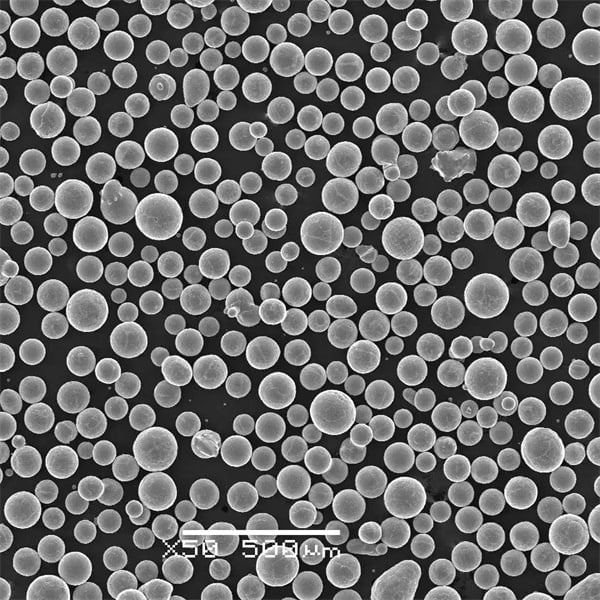
FAQ
What is Inductively Coupled Plasma?
It is a technology that uses high-temperature plasma for elemental analysis in various samples.
How does ICP work?
ICP uses electromagnetic induction to produce plasma, which excites atoms and ions, enabling their detection.
What are the main applications of ICP?
Environmental monitoring, geochemistry, food safety, pharmaceuticals, metallurgy, and more.
What are the advantages of ICP over other analytical techniques?
High sensitivity, multi-element capability, and wide dynamic range.
What are the limitations of ICP?
High operational costs, complexity, and requirement for skilled personnel.
Can ICP analyze non-metallic elements?
Generally, no. ICP is primarily used for metallic elements.
Is ICP analysis expensive?
Yes, due to the cost of equipment, maintenance, and consumables.
What are the common standards for metal powders used in ICP?
Standards include ASTM E1019, ASTM B170, ASTM B330, and more.
Who are the main suppliers of metal powders for ICP?
American Elements, Sigma-Aldrich, Advanced Materials, and others.
What factors affect the accuracy of ICP analysis?
Sample preparation, instrument calibration, and operator skill.
Conclusion
Inductively Coupled Plasma (ICP) remains an indispensable tool in the realm of analytical chemistry, offering unparalleled precision and versatility in elemental analysis. By understanding its applications, benefits, and limitations, industries can leverage ICP technology to achieve accurate and reliable results. From environmental monitoring to high-tech manufacturing, ICP’s role is crucial in ensuring the quality and safety of materials and products.
Whether you’re a seasoned professional or new to the field, this comprehensive guide provides the insights needed to navigate the complex world of ICP with confidence. Explore the tables, compare the options, and make informed decisions to harness the full potential of Inductively Coupled Plasma technology.
Share On
MET3DP Technology Co., LTD is a leading provider of additive manufacturing solutions headquartered in Qingdao, China. Our company specializes in 3D printing equipment and high-performance metal powders for industrial applications.
Inquiry to get best price and customized Solution for your business!
Related Articles
About Met3DP
Recent Update
Our Product
CONTACT US
Any questions? Send us message now! We’ll serve your request with a whole team after receiving your message.

Metal Powders for 3D Printing and Additive Manufacturing
COMPANY
PRODUCT
cONTACT INFO
- Qingdao City, Shandong, China
- [email protected]
- [email protected]
- +86 19116340731






